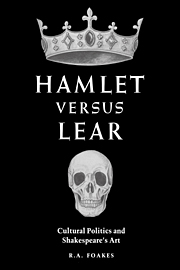Summary
Let me recapitulate briefly to put the last two chapters in context. The success of post-structuralism in abolishing the traditional parameters of literature and literary criticism has been stimulating and in some ways liberating. It has brought about an important shift in the criticism of Shakespeare, generating methods of opening the plays out rather than seeking to pin them down. It has challenged three major traditional critical principles: firstly, that the business of criticism was to seek for determinate meanings; secondly that any work must possess fixed, inherent principles of structure or design; and lastly that a final authoritative text could be traced for each play. So far, so good; but in rejecting these principles, post-structuralism has given critics power over the text and a sanction to display their own critical virtuosity, however tangential to the author and his work. For its demolition of the boundaries between literature and other forms of discourse, and consequent equalizing of all texts including critical ones, has led to a kind of critical cowardice, since no one wants to be seen claiming special status for art or artistry at a time when literature and criticism merge with sociology and history, so that debates about such topics as poverty, ideology, class conflict, the construction of gender, commercialization, patriarchy, and commodification are likely to be high on the agenda at academic conferences devoted to ‘literary’ topics.
- Type
- Chapter
- Information
- Hamlet versus LearCultural Politics and Shakespeare's Art, pp. 220 - 224Publisher: Cambridge University PressPrint publication year: 1993



